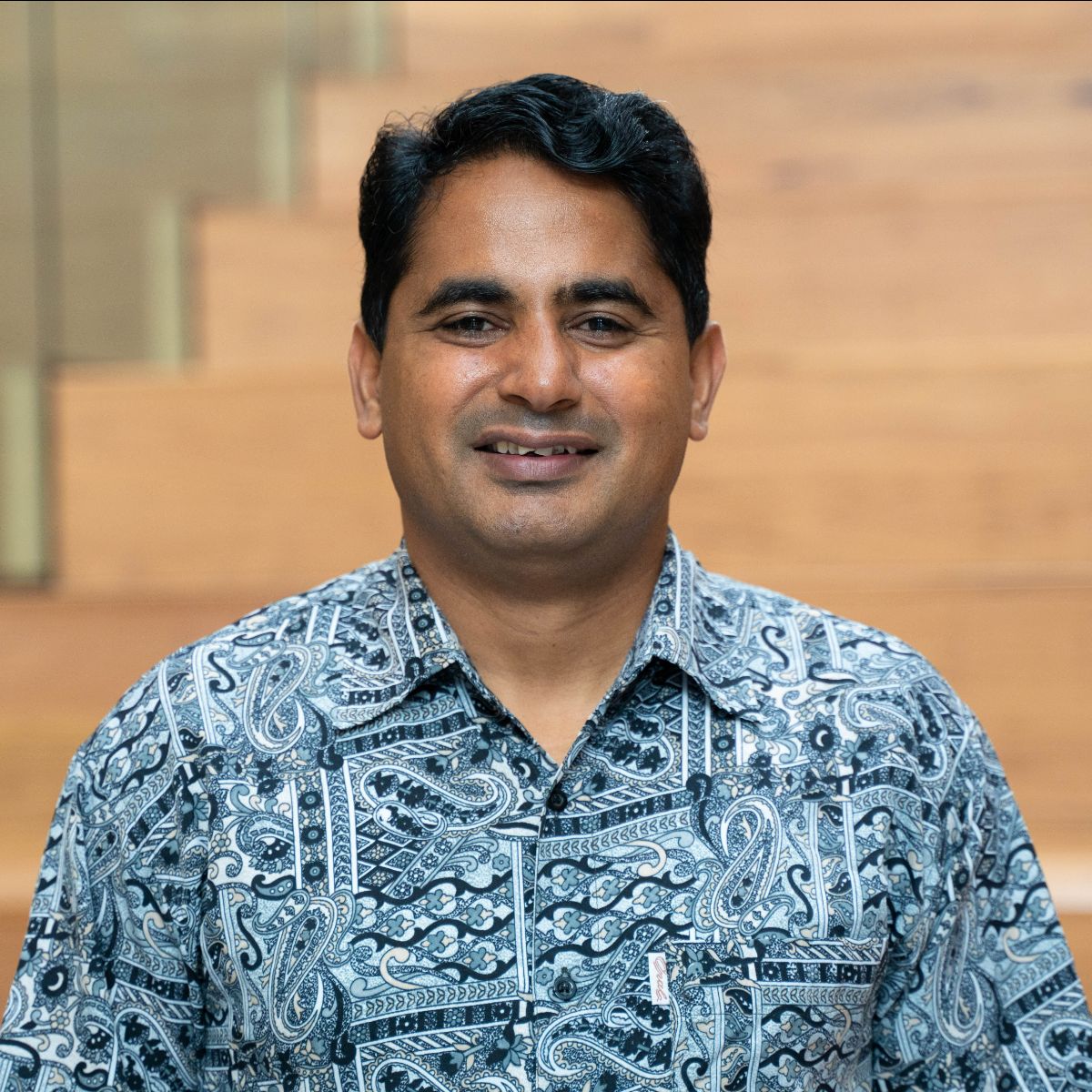Introduction to the Keynote Speakers
 Dr Laura Dixon
Dr Laura Dixon
University of Leeds
United Kingdom
Dr Laura Dixon is a lecturer in Crop Genetics and Physiology and UKRI Future Leader Fellow at the University of Leeds, UK. She received her PhD from the University of Edinburgh (understanding plant circadian rhythms) and her Bachelor’s degree from the University of Cambridge (Natural Sciences). Her research group works to understand how cereals respond to temperature signals and use this knowledge to adapt and increase the robustness of the plants developmental response to these signals. The group's work combines fundamental discovery science at the molecular and genetic level with the translation of this into realistic in-field environments. Their work focuses on reproductive plant biology including the vegetative to floral transition, floret formation and flowering time regulation. Through understanding these processes they aim to increase the developmental robustness of cereals, in particular wheat, under the increasingly variable climate conditions to enable an improvement in yield potential stability.
 Prof Graeme Batten
Prof Graeme Batten
The University of Sydney
NSW, Australia
Professor Graeme Batten grew up on a wheat-sheep farm in southern NSW. After 6 years at a one-teacher primary school and 5 years at boarding school he studied Rural Science at the University of New England. In 1970 he joined the NSW Department of Agriculture as a research chemist at the Wagga Wagga Agricultural Research Institute. His early research led to more efficient use of phosphate fertilizers in the wheat-pasture rotation farming system in southern NSW. For this work he was awarded a Master of Rural Science.
As semi-dwarf wheat varieties were released to farmers in the 1970’s Graeme turned his attention to the phosphorus-genotype interactions in wheat. Field studies were followed by detailed physiological studies of plants grown under controlled environmental conditions in the CSIRO Phytotron Canberra in 1981-1983 while a PhD candidate at the Australian National University.
In the mid-1980s Graeme resumed his research with NSW Agriculture based at Yanco. At that time rice growers urgently needed a guide to help them decide how much nitrogen fertilizer to apply to established crops. The outcome of his research, conducted in close collaboration with agronomists and the rice industry, was the rice crop tissue test for nitrogen uptake based on near-infrared spectroscopy (NIRS) as the analytical technology. This test, together with improved genetics and general crop management, led to a doubling of rice yields per ML of irrigation water.
As a Program Leader in the CRC for Sustainable Rice Production Graeme developed several interests relating to his vision “The efficient production of foods and fibres to feed and clothe people in all countries with minimal impact on the environment”. For both rice and wheat, he has reported that genetic variation exists in the utilization of P. This period merged into a 5-year appointment as a Professor of Irrigation with Charles Sturt University at Wagga Wagga.
Graeme is an active member of the Australian Near Infrared Spectroscopy Group (ANISG). He became secretary of the ANISG in 1995 (a position he held until 2022). He edited the proceedings of the International NIR conference held in Lorne in 1994 and was then invited to be an editor of the Journal of Near Infrared Spectroscopy. From 2005 to 2017 he was the Editor-in-Chief.
In 2005 Graeme ‘officially’ retired and moved to the North and later the Central Coast of NSW. His time has been devoted to editing and research. He is an Honorary Professor with the School of Life and Environmental Sciences at the University of Sydney. His current goal is to understand the influence of phosphorus on the NIR spectra of wheat grains. This is the key to identifying P-efficient wheat genotypes worldwide.
Graeme believes in teamwork and says that his contributions to food security have been made possible with guidance from numerous Australian and international scientists and excellent technical staff.
 Emeritus Professor Mike Gidley
Emeritus Professor Mike Gidley
The University of Queensland
Queensland, Australia
Prof Mike Gidley’s research is focused on structure-function relationships in biopolymer assemblies such as starch granules and plant cell walls. This has led to the detailed characterisation of starch and dietary fibre digestion/fermentation in vitro and in vivo, with the understanding, generated leading to opportunities for optimising the nutritional value of foods and feeds. He is also a Chief Investigator at the Australian Research Council Centre of Excellence in Plant Cell Walls.
He was trained in chemistry at the Universities of London (BSc) and Cambridge (PhD), and worked on food-related research for more than twenty years in Unilever’s R+D laboratory at Colworth House in the UK, beginning as a research scientist and culminating as the Group Leader for Plant-based Foods and Ingredients, before joining UQ in 2003.
His major research interest is the linking of plant molecular structures to macroscopic properties with relevance to plant-based food properties. In particular, he is interested in investigating polysaccharide assemblies such as plant cell walls and starch granules, particularly the way these structures are assembled in nature and then disassembled during manufacturing and later during digestion. His field of research involves the use of spectroscopic, microscopic and materials analyses of natural materials and model systems. Insights into structure-property relationships are obtained, which can then be used to provide targets for raw materials and processes with enhanced food and nutritional properties
 Dr Regine Stockmann
Dr Regine Stockmann
CSIRO Agriculture and Food
Melbourne, Australia
Dr Regine Stockmann is a Principal Research Scientist responsible for Product and Process Development at CSIRO Agriculture and Food. With qualifications in chemical engineering and biochemistry, she is the Team Leader of the CSIRO Food Technology Team and the Focus Area Lead for proteins.
Dr Stockmann leads fundamental and translational research addressing the innovation needs of the alternative proteins industry to enhance protein nutrition, techno-functionality and accessibility. Areas of expertise and interest include developing through-chain approaches to ensure protein composition, structure & function as defined by input and processing history dovetail with the intended end-use applications. Dr Stockmann collaborates with academia and industry and publishes in peer-reviewed papers and industry reports.
 Yours Sincerely,
Yours Sincerely,


 We look forward to seeing everyone in Rockhampton in September.
We look forward to seeing everyone in Rockhampton in September. Dr Laura Dixon
Dr Laura Dixon Prof Graeme Batten
Prof Graeme Batten Emeritus Professor Mike Gidley
Emeritus Professor Mike Gidley Dr Regine Stockmann
Dr Regine Stockmann This is a reminder that nominations for the FB Guthrie Grain Science medal close on Friday 31 March 2023. The Guthrie medal is AGSA’s highest award honouring the contribution of pioneer cereal chemist F B Guthrie, to grain science research in Australia.
This is a reminder that nominations for the FB Guthrie Grain Science medal close on Friday 31 March 2023. The Guthrie medal is AGSA’s highest award honouring the contribution of pioneer cereal chemist F B Guthrie, to grain science research in Australia.